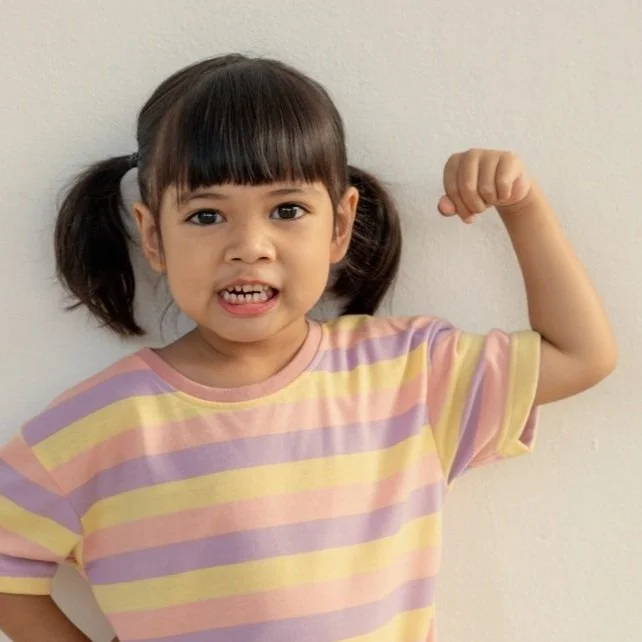
Therapeutic Approach
In our work together, we have so many brilliant tools to support you and your child!
Play-based Therapy
Play is everything for little ones! It’s how they learn. It’s how they emote. It’s how they connect. The evolution of Play Therapy is one of the most exciting developments in the history of mental health.
Look at your child: look at all the ways they play. It’s their healing, it’s their language, it’s their breath. Through observation and being with your child, we will resource what they already do best to understand them, help them to grow, learn, heal and connect.
“Play involves the child's physical, mental, emotional self in creative expression, and can involve social interaction. Thus, when the child plays, one could say that the total child is present.” --Garry Landreth, one of developers of Child-Centered Play Therapy
Strengths-Based Counseling
We build our strength through self-compassion and a deeper understanding of ourselves. The process of self-discovery is a lifelong journey, and being with your child is a fabulous way to strengthen your knowledge of self. You deserve to feel uplifted, from the inside out, and in true connection with yourself and your child, without all the noise and self-judgment.
As described in this article, “Strength-based therapy is a type of positive psychotherapy and counseling that focuses more on your internal strengths and resourcefulness, and less on weaknesses, failures, and shortcomings. This focus sets up a positive mindset that helps you build on your best qualities, find your strengths, improve resilience and change your worldview to one that is more positive.”
Trauma-Informed Framework
Many of us have experienced trauma, whether it’s interpersonal, cultural, physical, psychological, or emotional. It impacts us and the way we navigate the world. It can live in our cells and change our brain structure. In the relational work of being with children, our trauma can creep up into our tone of voice or body language. Having an awareness of this experience can really help peel back the layers to get to the root of behavior challenges or repetitive responses that we wish we could do differently as parents.
“Trauma-informed care is defined as practices that promote a culture of safety, empowerment, and healing,” as mentioned in this article from Harvard Medical School Health Blog.
Person-Centered Counseling
You are the expert in your experience. I am here to guide and support you in growing into the vision that you hold yourself as a parent. My work as your counselor/coach is to help you tap into your strengths and apply them to your life and relationship with your child in a way that is meaningful and sustainable, FOR YOU.
A person-centered therapist “operates according to three basic principles that reflect the attitude of the therapist to the client:
The therapist is congruent with the client;
The therapist provides the client with unconditional positive regard;
The therapist shows an empathetic understanding to the client.” (McLeod, 2019).
Anti-Bias education
Let’s empower the children in our care. Every child deserves to feel a deep sense of belonging, within and despite the context of culture, race, religion, gender, physical ability, learning processes, geographical location, and beyond.
Yet, bias is built into the systems and institutions in which we live, operate and communicate. How often have you caught yourself acting from your own assumption or fear of what you thought was going on, before you took inventory of the entire context? And your child has undoubtedly witnessed this!
That’s real. We don’t know what we don’t know. And when we know better, we need to commit to doing better. Amidst the deep reflection and understanding my whiteness and privilege and systems of oppression, I am committed to investigating the ways these things impact my relationships with everyone around me.
Check out the 4 core goals of Anti-Bias Education.
Montessori Education Method
I am trained as an early childhood educator and director. I am also trained in Montessori methodology and philosophy. This approach is based on the child’s intrinsic motivation to learn and fulfill their destiny and potential. It is our responsibility to prepare ourselves and the environment to support a child’s full sense of self and independence.
About play, Dr. Maria Montessori said,
“You will be surprised when I tell you that the greater part of what you call ‘play’ is really work. Grown-ups think of play as a purposeless occupation that keeps children happy and out of mischief. But actually, when children are left to play by themselves, very little of their activity is purposeless.”






